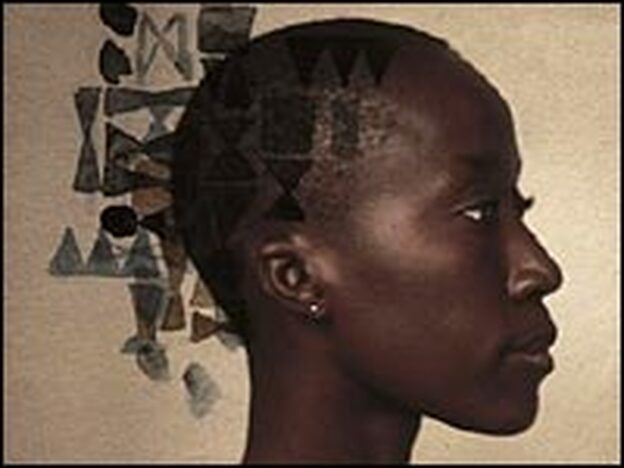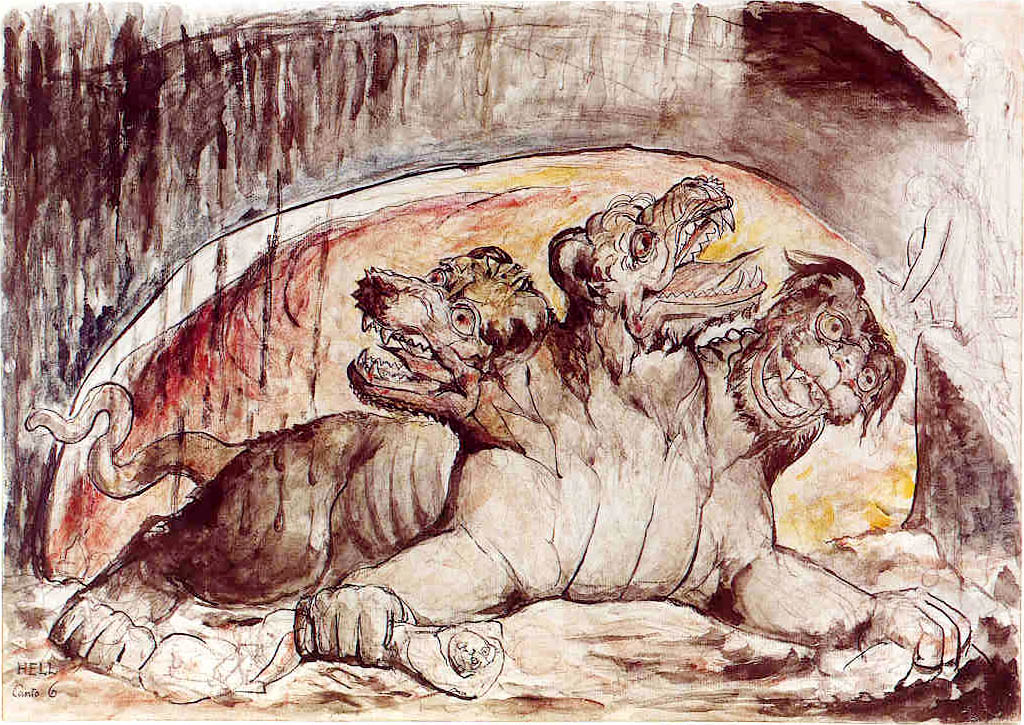The 68th edition of the
Cannes Film Festival will be held from 13 to 24 May 2015. For the first time the President of the Jury will be bicephalic [only one "l"!] in the person of the
Coen brothers, namely Joel (60) and Ethan (57). If we also add "Roderick Jaynes," the alias under which they edit their films, we get to the picture of a three-headed dog that will defend the imaginary world of cinema just like Cerberus was guarding the entrance of the Greek underworld (drawing by William Blake, 1824-1827).
It is quite remarkable that two individuals collaborate so well together and so persistently that they end up being known primarily as a unique composite entity. In fact, such a close collaboration seems to require also some consanguinity. The only counter-example that I can think of is the Straub-Huillet duo of filmmakers, but then they were married. The prominence of the duo apparently even transcends death, since the films directed by Jean-Marie Straub since the death of Danièle Huillet in 2006 are still part of its
filmography on the French Wikipedia. (Other collaborative couples in art include the duo of photographers Bernd and Hilla Becher, or with the duo of artists Gilbert & George.) It is easier to find examples of cinematic brothers: Jean-Pierre and Luc Dardenne (Palme d'Or for
Rosetta in 1999 and again for
L'Enfant (
The Child) in 2005), Paolo and Vittorio Taviani (Palme d'Or for
Padre Padrone (
Father and Master) in 1977 and Golden Bear for
Caesar Must Die in 2012), or even the Wachowski "brothers" (
The Matrix). See more brothers
here.
A natural explanation for the ubiquity of cinema duos could be searched in the transdisciplinarity inherent to filmmaking. The creation of a movie involves a relatively large number of diverse activities, from screenwriting to production, from direction to editing. It's a tantalising task for a single creator to succeed in achieving a satisfactory level of involvement in all these aspects of filmmaking. So it clearly helps to be more than one for that. But then why so specifically brothers, and not simply friends of colleagues? The thing is that in order for the collaboration to work, the vision for the movie, the creative source must coincide precisely in the minds of the two directors. This is obviously very hard to achieve: we have no means to directly communicate images from mind to mind, and language cannot transmit the true essence of a cinematic vision (it can indeed be argued that cinema is a genuine art inasmuch as it is able to convey more than language). Then it makes sense that successful duos of filmmakers consists of partners that not only happen to have affinities, but moreover developed their sensitivities together, just like brothers with the same passion would.
The close relation between cinema and childhood makes it probable that children reinforce each other's fascination.
A similar argument would be to consider the idea that a good film needs to be rich, in the sense that it should constitute a synthesis of broad array of perspectives on several level: emotional, intellectual, sensual, etc. And again it is certainly simpler to achieve this breadth when one has more than one heart and spirit. It is interesting to notice that both Ethan Coen and Luc Dardenne did not study film or drama like their brothers, but rather philosophy. This might have helped their respective duos to produce films with considerable existential width.
We could however go further and wonder if there is not something deeper in the relation between brotherhood and cinema. Just remember that the first filmmakers in history were none other than the brothers Louis and Auguste Lumière!
Of course, there is nothing surprising at the end of the XIXth century for two brothers to end up working together in their father's firm. Many if not most businesses were family businesses at the time. Is there more to it? Did the fact that the first (true) motion picture,
Sortie de l'usine Lumière de Lyon (1895), was created by brothers set a precedent in the subconscious history of cinema?
PS: serendipitously, this first motion picture ever was shot
exactly 120 years before the publication of this post!












